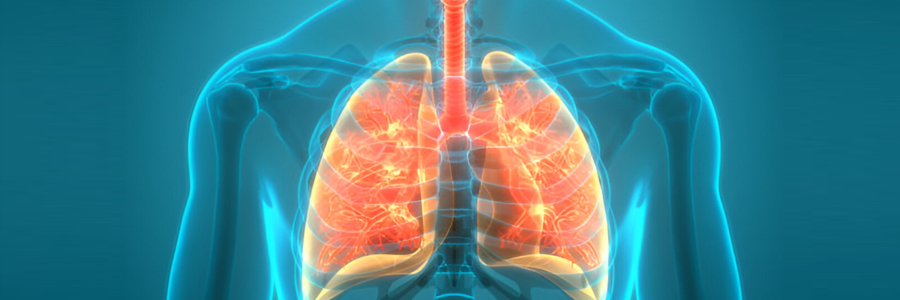
Pulmonology
We offer personalized treatment plans for all types of lung diseases and sleep disorders using a multi-disciplinary approach.
Welcome to the Department of
Pulmonology at Magnus Multi-speciality Hospital and Cardiac Centre
The Department of Pulmonology is one of the most integral parts of MMHCC. The department aims to treat multiple complex pulmonary challenges that involve lungs and breathing. The specialists provide some of the most diverse and comprehensive pulmonary, sleep and critical care for our patients.
Why Choose US?
The department of pulmonology consists of specialists who work in a coordinated, comprehensive and effective manner to provide every patient with proper diagnosis and treatment. Our team's aim is to create a holistic medical care where an individualized treatment plan is created to consider all aspects of the condition and the patient’s unique needs. Our specialists are constantly adapting and advancing with the new and innovative practices of pulmonary medicine and critical care.
- The Respiratory System
- The respiratory system comprises the airway, lungs and respiratory muscles.
- The Airway
- The airway includes the following
- nose
- mouth
- throat or pharynx
- voice box or larynx
- windpipe or trachea
- bronchi which are the passageways in the lungs
- bronchioles which are even smaller passageways in the lungs
- alveoli which are the air sacs in the lungs
- Lungs
- Respiratory Muscles
Several muscles are involved during respiration. The primary muscle used is the diaphragm. The other muscles include the following:
Intercostal muscles. These muscles are involved in the mechanical aspects of breathing and help the chest to expand and shrink. They run between the ribs and help form and move the chest wall. The intercostal muscles aid in the mechanical aspects of breathing by helping expand and shrink the size of the chest.
Accessory muscles. They only assist other muscles during the breathing process and do not play a major role. However, if these muscles are strained and are used while at rest it is indicative of respiratory distress.
Expiratory muscles. These are used during forced exhalation and include muscles present in the abdominal wall and rib cage.
The Department of Pulmonology is divided into the following sub-specialities:
Interstitial lung disease, which is a group of conditions that affect the space and tissue within the lungs
Interventional pulmonology, is a part of pulmonology which involves using a multidisciplinary approach to treating airway disorders and pleural diseases (that affect the membrane that surrounds the lungs called pleura)
Neuromuscular disorders, it comprise a set of conditions that result in respiratory muscle failure.
Obstructive lung disease, which involves narrowing or obstruction of the airways.
Sleep-disordered breathing is a general term for a broad spectrum of sleep-related breathing disorders or conditions with an abnormal breathing pattern during sleep. This includes obstructive sleep apnoea (OSA), central sleep apnoea, as well as sleep-related hypoventilation and hypoxemia.
- Conditions we treat
- The conditions treated include but are not limited to
- Asthma
- Asthmatic bronchitis
- Bronchiectasis
- Bronchiolar disease
- Childhood asthma
- Chronic bronchitis
- Chronic cough
- Chronic pulmonary thromboembolism
- Complex sleep apnoea
- COPD
- Cryptogenic organizing pneumonia
- Cystic fibrosis
- Emphysema
- Fungal lung infection
- Granulomatosis with polyangiitis
- Hepatopulmonary syndrome
- Hypersensitivity pneumonitis
- Insomnia
- Interstitial lung disease
- Mediastinal lymph node enlargement
- Mycobacterial infection
- Nicotine dependence
- Nontuberculous mycobacterial pulmonary disease
- Obstructive sleep apnoea
- Pleural disease
- Pleural effusion
- Pneumonia
- Pneumothorax
- Post-COVID lung disease
- Pulmonary arteriovenous malformation
- Pulmonary embolism
- Pulmonary fibrosis
- Pulmonary hypertension
- Respiratory failure
- Sarcoidosis
- Snoring
- Tuberculosis(pulmonary and extrapulmonary)
Pulmonology Department Doctors



